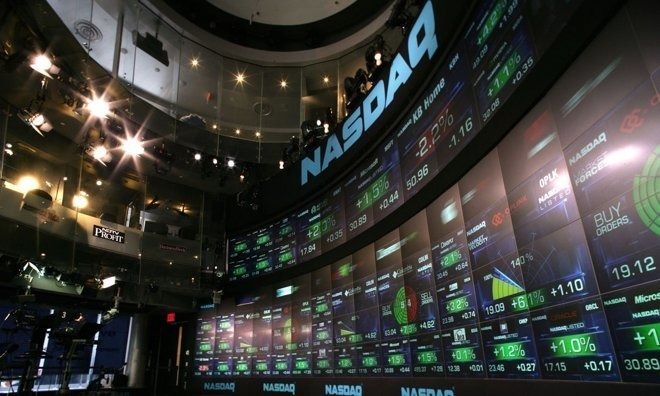After achieving a market capitalization above $800 billion in after hours trading on Monday, Apple on Tuesday became the first U.S. company in history to cross that market value border on a closing basis.

Apple stock ended the day up one percent to close at $153.99, granting the tech giant a market cap of just under $803 billion. The company's closing stock performance echoes a performance put in during after hours trading on Monday, when Apple first passed the $800 billion mark after shares surged past $153.
The latest development continues a string of stock achievements for the world's most valuable company. In February of 2015, Apple became the first U.S. firm to close with a market cap above $700 billion in a run that peaked at $775 billion before receding. Apple's regained super-$700 billion levels in February.
Apple's iPhone is in large part responsible for nearly a decade of booming revenues. Amidst economic headwinds in China and slowing domestic demand, the popular smartphone saw its first ever year-over-year decline in sales in the second fiscal quarter of 2016. The downward trend has continued through to the most recent quarter, the lone bright spot being last year's holiday quarter.
The company saw another iPhone sales contraction during the three-month period ending in March, though revenue was up slightly due to a higher mix of iPhone 7 Plus sales. In a conference call last week, CEO Tim Cook said demand for the phablet was stronger than expected, leading to initial supply constraints. The mix toward iPhone 7 Plus pushed iPhone's average selling price up to $655 for the quarter, as compared to $642 in the same period in 2016.
Aside from iPhone, Apple is quickly growing its services business, which raked in $7.04 billion for the quarter and is on track to become the size of a Fortune 100 company by the end of the year. Wearables, which Apple considers Apple Watch, AirPods and Beats products, is another quickly growing segment that if broken out into its own category would be the size of a Fortune 500 company. Currently, Apple lumps wearables in with iPod and various accessories as "other" revenue.


